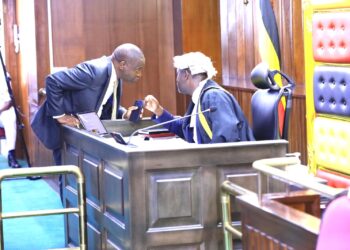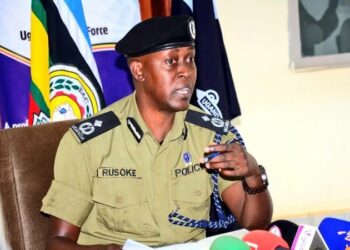Opposition politicians in Kenya have accused the government of conducting a campaign of “genocide” against ethnic minorities in the aftermath of the country’s controversial presidential election.
The new and harsh language will raise tensions still further, prompting fears of further polarisation in what is already a deeply divided country.
Sporadic violence continued on Friday, with police saying they shot dead one man, bringing to five the number of confirmed dead since voting began on Thursday. All were killed in the west of the country, which supports the opposition.
So far this year, 44 people have died in election-related violence since the August poll.
With Uhruru Kenyatta, the incumbent president, currently winning with nearly 98% of the vote following an opposition boycott, attention is now focused on the turnout in the poll.
The total number of votes cast were still being tallied late on Friday but the total in the early evening stood at 6.4m ballots – around a third of registered voters.
The low proportion of eligible voters who went to the polls will undermine the credibility of any mandate Kenyatta may claim and will be seen as a victory by the opposition, which called for a boycott.
“This government is unhappy that the people has rejected it. It has elected to fight back through violence, death and mayhem,” opposition politician Musalia Mudavadi said, accusing the government of deploying security forces to the west of the country to conduct a “genocidal pogrom”.
Kenya is a patchwork of different ethnic communities and groups. There has long been simmering resentment between those that are more influential – such as the Kikuyu – and those that see themselves as marginalised – such as the Luo.
Kenyatta, 55, is a Kikuyu. Raila Odinga, the 72-year-old veteran politician who leads the opposition, is a Luo.
Ethnic violence following elections in 2007 led to 1,200 deaths.
“What we have is a problem of tribalism and tribalism is an issue that we must continue to deal with and fight with as we continue to develop our country. We cannot achieve our goals if we continue to embark on tribalistic politics,” said Kenyatta after voting on Thursday.
Millie Odhiambo, an opposition member of parliament known for her uncompromising views, said the government wanted to incite violence.
“They are saying it is about one ethnic community … but in reality most of this country is tired of this government,” she said.
The polls on Thursday were marred by clashes between police and stone-throwing youth in opposition strongholds.
Voting in four counties in the west of Kenya was first deferred until Saturday for security reasons then postponed once again late on Friday after further clashes. No new date has been given for polls there.
Government supporters have accused the opposition of using intimidation and violence to deny Kenyan citizens their right to vote.
The increasingly chaotic political drama in Kenya began when the supreme court overturned Kenyatta’s victory in the 8 August election. It cited irregularities and mismanagement by the Independent Electoral and Boundaries Commission (IEBC).
The turnout for that poll was 80%.
Odinga then withdrew from the rerun election, citing fears it would be marred by the same flaws as the August vote.
Multiple legal challenges to the new election are expected. Most analysts believe they are unlikely to provide a clear path out of the crisis and many Kenyans fear a protracted political stalemate between the Kenyatta and Odinga camps.
“Unless the courts annul the election, Kenyatta will move forward without a clear mandate and Odinga will pursue a protest strategy whose chances of success in the circumstances are not very high,” said Murithi Mutiga, a Nairobi-based analyst with the International Crisis Group.
Opposition lawyers may cite the failure to open polling stations in parts of the country as a reason to declare the poll unconstitutional and seek a fresh contest.
Other grounds could include a high court ruling the day before the election that said hundreds of election officers had been improperly recruited.
The supreme court judgment annulling the August poll was seen as a victory for democracy in Kenya, which is considered a bulwark of stability in a region beset by conflicts, humanitarian crises and deep environmental woes.
Kenyatta has said he would reach out to opponents, but a similar pledge after the August election did not lead to any meaningful dialogue.
Opposition officials said they did not know what any talks would be about, other than when to hold a third poll which would be “free and fair”.
Non-governmental groups have raised concerns about alleged sexual violence by Kenyan police during unrest linked to the country’s August election.
About 20 local and international groups said in a letter to Kenyan health and security officials that there were at least 60 cases of sexual violence during the August election period and that most allegedly were committed by police or men in uniform.
Source: www.theguardian.com
Do you have a story in your community or an opinion to share with us: Email us at editorial@watchdoguganda.com












